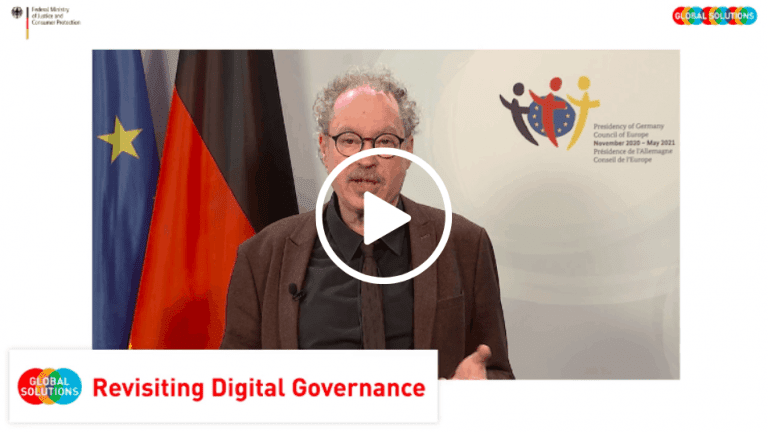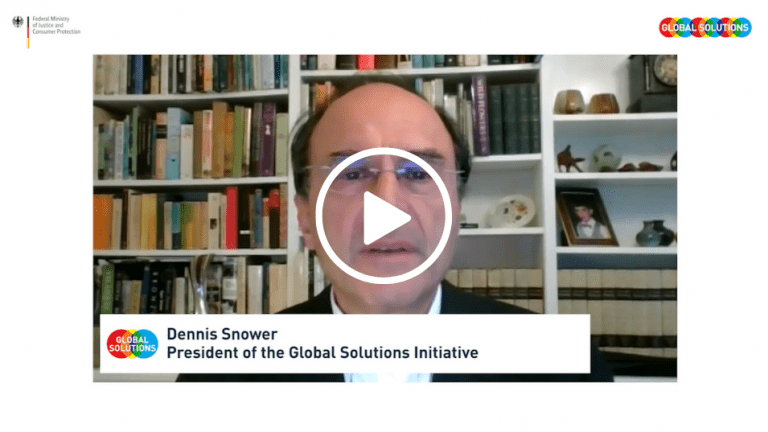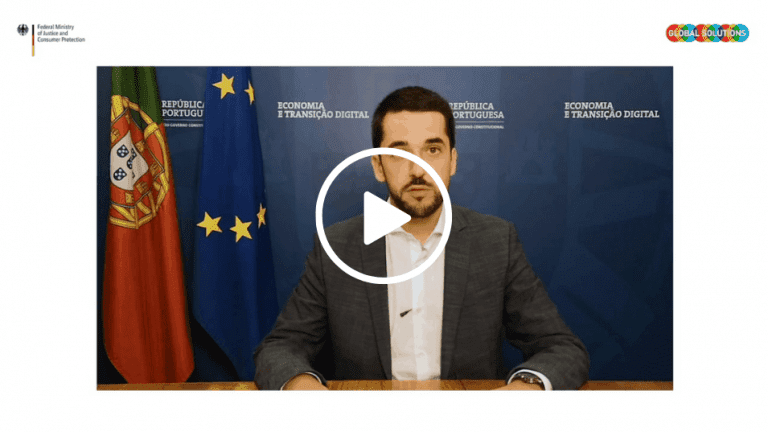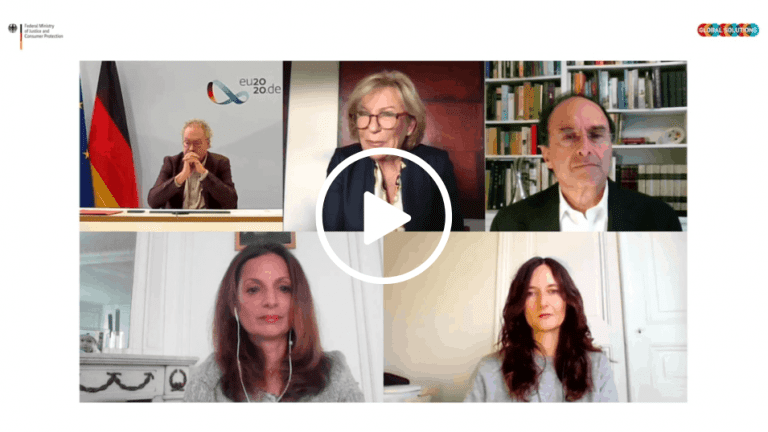.
Digital Governance
Society at large can only reap the benefits of digitalization if it succeeds in promoting economic, social and political progress. The Global Solutions Initiative has therefore set itself the goal of actively advancing the debate on digital governance and developing proposals in close cooperation between research, business and politics that will lead to a comprehensive reorientation of the digital space in the spirit of recoupling.
Revisiting Digital Governance
Together with the German Federal Ministry of Justice and Consumer Protection, a comprehensive discourse has been initiated that aims at maintaining the benefits of the digital world while recoupling the technological advances with economic and social progress.
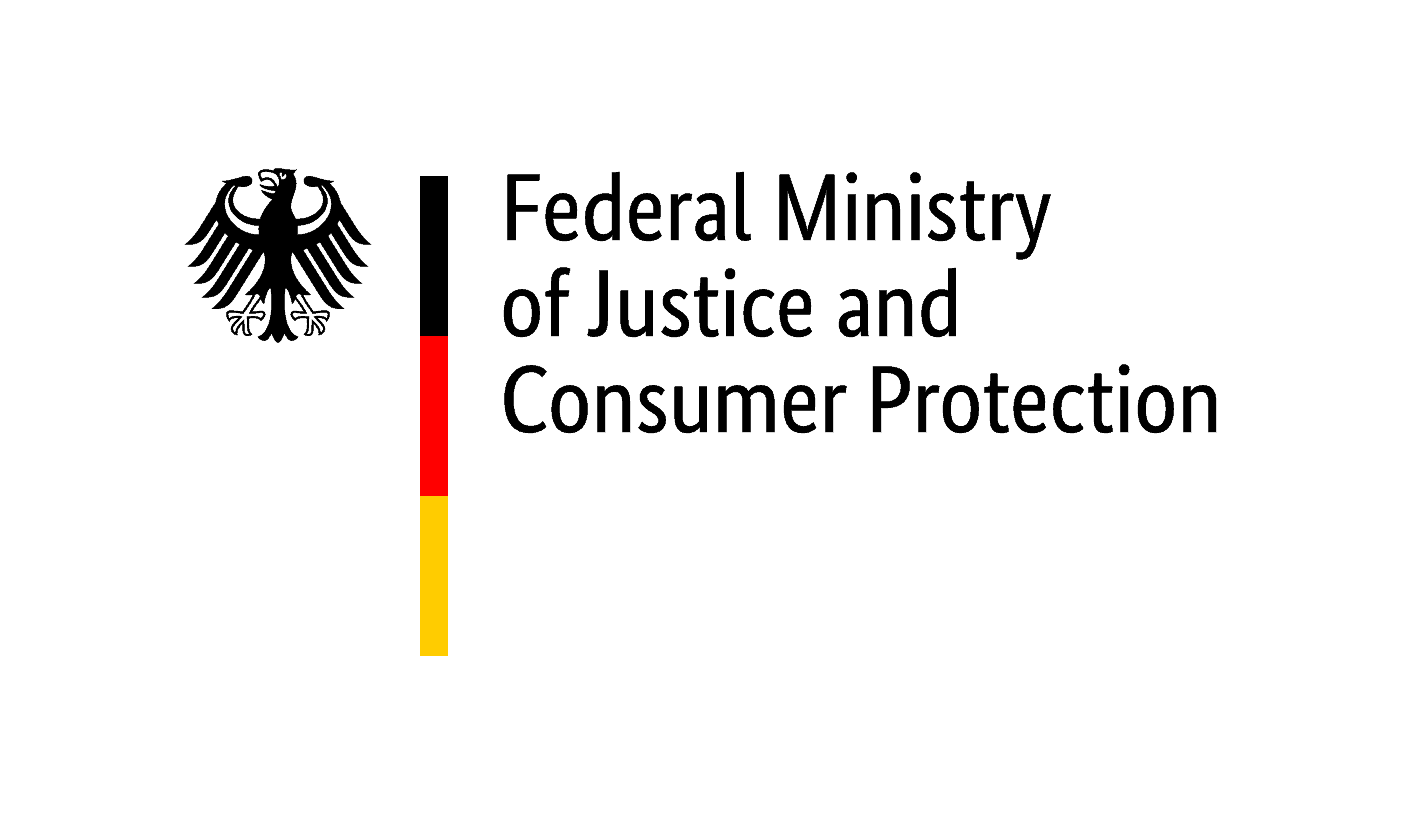
The underlying vision for revisiting digital governance is a future in which:
- Digital property rights are strengthened. Users must be in full control of their individual data. Access to and control of common data is redistributed.
- Economic innovation is facilitated and competition in online markets enriched by applying anti-trust regulation.
- No company or institution holds key information on an individual without that person’s knowledge and consent.
- Economic, social or political manipulation will be illegal and auditable.
- Basic human rights will not be undermined by an opaque or pervasive surveillance capitalism.
- Freedom of association and collective bargaining will have the skills and the power to negotiate on behalf of users for a more equal use and financial terms with large data holders.
Dennis J. Snower, President of the Global Solutions Initiative, Paul Twomey, Distinguished Fellow at the Center for International Governance Innovation and ICANN-Co-Founder, and tech policy expert Maria Farrell have put up a proposal for revisiting digital governance that is compatible with and build upon the EU’s General Data Protection Regulation (GDPR), the forthcoming e-Privacy Regulation, and the Digital Services Act and Data Act.
In their discussion paper, the three authors propose a new classification system for personal data. This system distinguishes between official data (data authenticated by official bodies), collective data (data that people agree to share with a pre-defined group for collective purposes) and privy data (data that is volunteered by the individual or inferred through their behaviour).
On this basis, the authors draft policy recommendations and implementation options that strengthen the digital property rights of users and at the same time provide for collective bargaining powers in the sense of trade unions and consumer protectors who act and negotiate on behalf of users.
Revisiting Digital Governance: Discussion paper
Revisiting digital governance was first published in the Social Macroeconomics Working Paper Series of the Blavatnik School of Governance, Oxford University, in September 2020. The authors lay out the problems associated with the current digital governance and propose policy recommendations as well as implementation options to recouple the technological advances with economic and social progress.
Third solution session
This session, the third in a series of sessions discussing the challenges of current data ownership regulation and possible solutions to these challenges, explores the road from theory to practice. Having outlined the proposal for strengthening data ownership, we discuss implications for business in terms of positive effects for innovation and fair competition, as well as possible challenges created by the proposed regulation of data ownership. The panel discussion provides the basis for a first political resumé with regard to political action on the international level.
Review: Keynote at informal meeting of the Ministers for Consumer Protection
Dennis Snower had the honor to address the EU Ministers for Consumer Protection at the Informal Meeting of the Ministers for Consumer Protection on December 7, 2020 with a focus on the European Commission’s New Consumer Agenda. The meeting was chaired by Christine Lambrecht, German Federal Minister of Justice and Consumer Protection, as part of Germany’s Presidency of the Council of the European Union in the second half of 2020. In his keynote speech on “Digitalization and the platform economy: a reaction to the new Consumer Agenda”, Dennis Snower provided food for thought on the topic of digital transformation and European cooperation, proposing that the New Consumer Agenda would benefit from a policy approach that directly addresses the issue of third-party financed digital barter, as proposed in the discussion paper “Revisiting Digital Governance”.
Find here the complete opening of the Informal Videoconference of the Ministers for Consumer Protection on the website of the Federal Ministry of Justice and Consumer Protection (in German).
Second solution session
The Second Solution Session continues the debate that was initiated through the first session, incorporating the valuable input received through the Online Exchange.
Federal Minister for Justice and Consumer Protection Christine Lambrecht, State Secretary Christian Kastrop, Portuguese Secretary of State for Trade, Services and Consumer Protection João Torres, Global Solutions President Dennis J. Snower, Anna Byhovskaya, Senior Policy Adviser to the Trade Union Advisory Committee at the OECD (TUAC) and Brigitte Acoca, Head of the Consumer Policy Unit at the OECD, discuss consumer protection and consumer rights in the digital world, new European Commission rules on data governance, the role of trade unions and other agencies in strengthening digital property rights and the responsibility of companies to protect consumers in the digital space.
Online live exchange
How can we reimagine Digital Governance so that technological progress is recoupled with economic and social wellbeing?
After a short introduction by Dennis Snower, President of the Global Solutions Initiative, and Global Solutions Fellow Paul Twomey, Distinguished Fellow at the Centre for International Governance Innovation, participants were invited to share their recommendations, ideas and questions on how we can shape digitalization and the current social and economic transformation processes.
First solution session
Get Involved
Would you like to work with us on Revisiting Digital Governance and contribute to the policy recommendations?
Are you interested in more information or in scheduling an interview?
Please contact us at [email protected]






